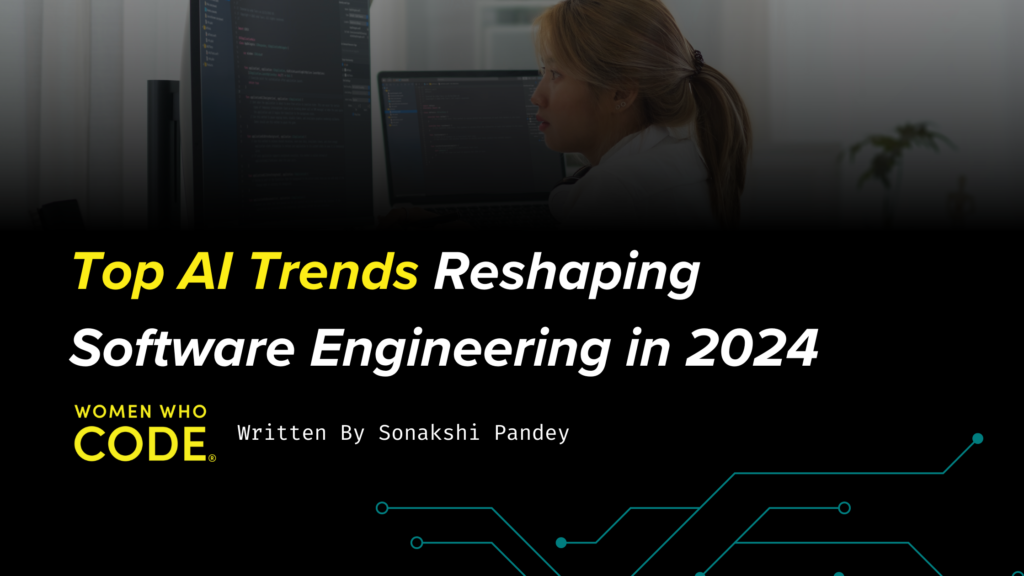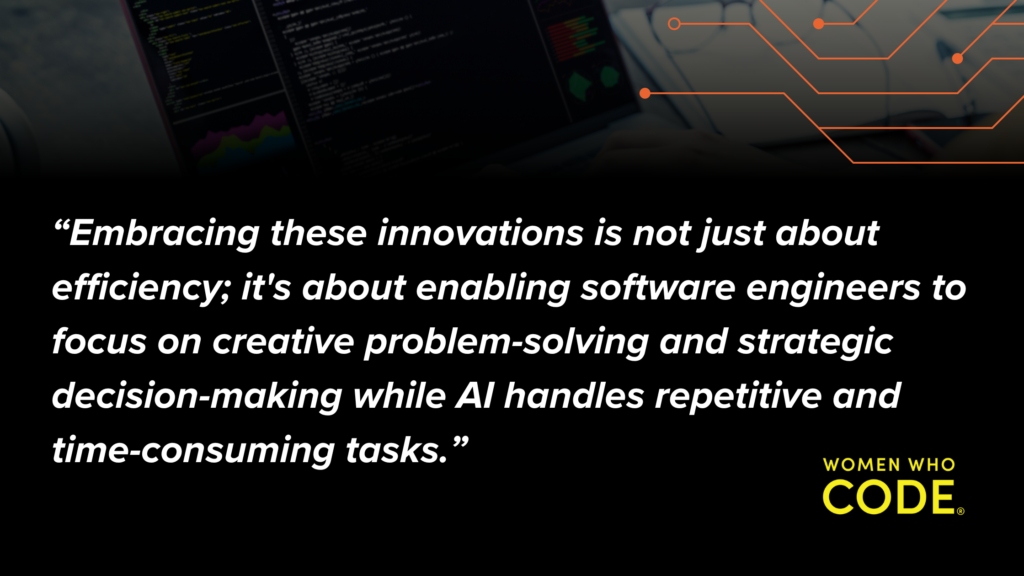Top AI Trends Reshaping Software Engineering in 2024
Written by Sonakshi Pandey

As the software engineering landscape continues to evolve, artificial intelligence (AI) has emerged as a transformative force, disrupting traditional practices and accelerating innovation. As we move into 2024, the absence of AI in software engineering could mark a crucial gap, causing teams to fall behind in an environment where rapid evolution is the norm. The imminent advancements in AI-powered enhancements promise a radical shift in how software is developed, deployed, and monitored.
Five key AI trends will be particularly impactful:
- Automated Scrum processes and progress-tracking software: Engineering teams spend quite some time on tedious Scrum processes like scrum planning, progress tracking, retrospection, and daily stand-up meetings. Automated scrum processes now integrate AI algorithms to track progress, identify bottlenecks, and recommend tasks based on engineering roadmaps. These advancements facilitate smoother project execution and enable better decision-making.
- Faster software development cycles with code generation: The market has sophisticated tools that can generate code from natural language or architecture diagrams. These tools make it significantly easier to create code, understand it, and tweak it to be most efficient and ensure there are good comments for understandability. This innovation significantly expedites the coding process, allowing engineers to focus more on critical aspects of software architecture and logic.
- CI/CD process automation: Continuous integration and continuous delivery (CI/CD) are essential for automating and streamlining the entire software delivery process, but managing the pipeline can be complex and time-consuming. AI is stepping in to automate tasks like code testing, integration, performance analysis, security scanning, and deployment. This automation accelerates the software delivery cycle and enhances code quality and stability. AI can monitor the performance of software in production and identify areas for optimization.

- Intelligent bug detection and resolution: Debugging can be a frustrating and time-consuming process. AI-powered tools are taking the guesswork out of bug hunting by automatically identifying potential issues within the code. AI-powered tools can analyze large codebases, identify bugs, and recommend solutions, saving valuable development time and guiding developers toward the most efficient resolution. Faster bug detection and resolution minimizes development costs associated with rework and delays.
- Documentation and knowledge-based generation: AI-powered systems can now automatically document code and generate comprehensive knowledge bases. Natural language processing algorithms extract information from code repositories, creating detailed documentation that aids in understanding code functionalities and facilitates knowledge sharing within engineering teams. AI can generate knowledge bases that are easily accessible and searchable, fostering collaboration and knowledge sharing within the team.
The integration of these AI-driven trends is revolutionizing the software engineering landscape, empowering teams to deliver higher-quality software in shorter timeframes. Embracing these innovations is not just about efficiency; it’s about enabling software engineers to focus on creative problem-solving and strategic decision-making while AI handles repetitive and time-consuming tasks.